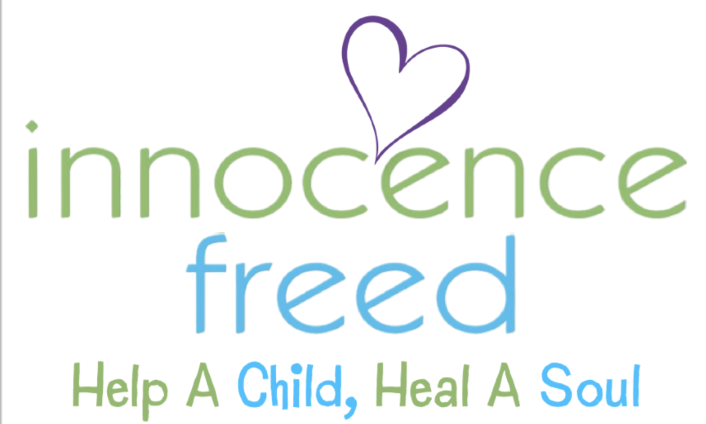What if you are a victim of Ritual Abuse Trafficking?
Seek Trauma-Informed Therapy
Therapy can be a critical part of the healing process. For survivors of ritual abuse, trauma-informed therapy approaches are particularly helpful as they cater specifically to the needs of individuals who have experienced intense and prolonged trauma. Some effective therapy options include:
- Eye Movement Desensitization and Reprocessing (EMDR): A therapy that helps survivors process traumatic memories in a way that reduces their emotional impact.
- Somatic Experiencing: Focuses on releasing trauma stored in the body by helping survivors reconnect with bodily sensations.
- Cognitive Behavioral Therapy (CBT): Helps survivors challenge and change patterns of negative thought related to their abuse, supporting them in rebuilding confidence and self-worth.
- Dialectical Behavior Therapy (DBT): Offers techniques for managing emotions and reducing symptoms associated with post-traumatic stress.
- Equine Therapy (EAT): Also known as Horse Therapy, is a therapeutic approach that incorporates interactions with horses to promote emotional, mental, and physical healing. This type of therapy is often used to help individuals with various conditions, such as trauma, anxiety, depression, PTSD, autism spectrum disorders, and behavioral issues. Through structured activities involving horses, participants can develop skills in trust, empathy, confidence, communication, and self-regulation.
Finding a therapist experienced in trauma and familiar with ritual abuse can make a significant difference. Many therapists offer sliding scale fees, and some nonprofit organizations may cover therapy costs.
Join Support Groups
Support groups like Innocence Freed can be a powerful way to connect with others who have had similar experiences. Talking with other survivors who understand the effects of ritual abuse and trafficking can provide comfort and help survivors feel less isolated. Support groups also offer a space to share coping strategies and provide encouragement.
- Local and Online Support Groups: Many communities have local support groups for survivors of trauma, often through community centers or nonprofit organizations. Online support groups also offer safe spaces to connect with others and can be found through mental health platforms, survivor forums, or organizations like RAINN.
- Specialized Survivor Networks: Some organizations and advocacy groups run survivor networks that connect individuals with others who have experienced ritual abuse. These networks provide support and may offer group therapy sessions, workshops, and additional resources.
Access Medical and Psychological Health Care
Survivors of trafficking and abuse often have unique medical needs due to the physical trauma they’ve endured. Seeking medical help is crucial for long-term recovery, as healthcare providers can treat physical injuries and screen for mental health issues.
- Health Clinics for Survivors: Some clinics and hospitals have special programs for survivors of trafficking and abuse, often funded to provide low-cost or free services. These clinics may offer a combination of medical and mental health care tailored to survivor needs.
- Routine Health Screenings: Survivors should consider comprehensive health screenings, including sexual health exams and general physical check-ups, to address any physical injuries or conditions related to the abuse they endured.
Survivors should try to locate healthcare providers who specialize in trauma-informed care, as these professionals are trained to offer sensitive and supportive services to individuals who may experience anxiety or fear in clinical settings.
Explore Legal Assistance
Legal issues can be complicated for survivors, especially if they are trafficked or abused by people with influence or connections. Legal aid organizations can help survivors navigate these issues, including pressing charges, seeking restraining orders, and securing protective status in cases where immigration is a concern.
- Legal Aid Clinics: Many cities and nonprofit organizations provide free or low-cost legal services for survivors of trafficking. Legal aid can assist with obtaining protective orders, seeking compensation, and ensuring safety.
- Human Trafficking Advocates: Some advocates specialize in helping survivors of trafficking through legal systems. They can help survivors understand their rights and provide support through the legal process.
- Immigration Services for Trafficking Victims: In some countries, survivors who were trafficked internationally may qualify for special visas, like the U.S. T Visa, which provides temporary residency for trafficking survivors and can help them avoid deportation.
Develop and Use a Safety Plan
Creating a personal safety plan can be empowering and may help survivors feel more in control of their environment. A safety plan might include steps for avoiding contact with abusers, safe ways to communicate with trusted individuals, and instructions for accessing emergency help if needed.
- Identify Safe Spaces and People: Recognize friends, family, or community members who can be relied on in case of emergency or who can offer support when needed.
- Create a List of Emergency Contacts: Keep phone numbers of trusted individuals, helplines, and local resources easily accessible.
- Secure Important Documents: If possible, keep identification, medical records, and any other important documents in a safe place or give copies to someone trustworthy.
Learn and Practice Coping Techniques
Healing from trauma often involves managing triggers, flashbacks, and anxiety. Learning self-care techniques and coping strategies can help survivors deal with these emotional challenges. Some techniques include:
- Mindfulness and Grounding Exercises: Techniques like deep breathing, progressive muscle relaxation, and focusing on sensory experiences can help reduce anxiety and manage panic attacks.
- Journaling: Writing down thoughts and feelings can be a way to process complex emotions and gain insights into the recovery journey.
- Creative Outlets: Art therapy, music, and other creative activities can help express emotions that are difficult to verbalize.
Build a Supportive Community
Reconnecting with the community can be a powerful way for survivors to rebuild trust and develop a support network. This may involve engaging with social services, reconnecting with family or friends, or finding new communities that foster a sense of safety.
- Community Centers: Some local centers offer free classes, support groups, and other activities that provide opportunities for connection.
- Volunteer Work or Advocacy: Some survivors find healing by participating in volunteer work or by engaging in advocacy related to trafficking or abuse prevention. This involvement can also help survivors gain a sense of purpose and empowerment.
Know Your Rights and Take Action Against Re-traumatization
Survivors have the right to be treated with respect and dignity, particularly in mental health, legal, and medical settings. Setting personal boundaries, advocating for their needs, and understanding their rights as survivors are all essential steps to protect against retraumatization.
- Know What Feels Safe and Comfortable: Survivors should feel empowered to express their needs, including what feels safe in therapeutic and healthcare settings.
- Advocating in Mental Health Care: If a therapist or other mental health professional is not offering the right support, seeking a different practitioner who understands ritual abuse and complex trauma may be necessary.
Stay Informed and Take Small Steps Forward
Healing is a gradual process, and there may be setbacks along the way. Survivors are encouraged to take their time, seek out resources, and remind themselves that each small step is progress. Staying informed about new treatment options, survivor rights, and ways to practice self-compassion can make a difference in long-term recovery.
While the path to healing may feel daunting, it is essential to remember that help is available and that many survivors have successfully reclaimed their lives. By taking steps toward finding trusted support systems, engaging in trauma-informed therapies, and reconnecting with the community, survivors can work toward healing and creating a future that feels safe and empowering.



